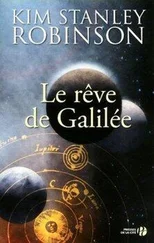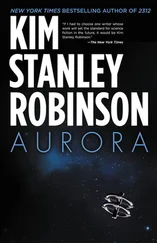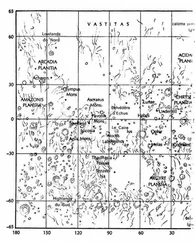Kim Robinson - In Pierson’s Orchestra
Здесь есть возможность читать онлайн «Kim Robinson - In Pierson’s Orchestra» весь текст электронной книги совершенно бесплатно (целиком полную версию без сокращений). В некоторых случаях можно слушать аудио, скачать через торрент в формате fb2 и присутствует краткое содержание. Жанр: Фантастика и фэнтези, на английском языке. Описание произведения, (предисловие) а так же отзывы посетителей доступны на портале библиотеки ЛибКат.
- Название:In Pierson’s Orchestra
- Автор:
- Жанр:
- Год:неизвестен
- ISBN:нет данных
- Рейтинг книги:4 / 5. Голосов: 1
-
Избранное:Добавить в избранное
- Отзывы:
-
Ваша оценка:
- 80
- 1
- 2
- 3
- 4
- 5
In Pierson’s Orchestra: краткое содержание, описание и аннотация
Предлагаем к чтению аннотацию, описание, краткое содержание или предисловие (зависит от того, что написал сам автор книги «In Pierson’s Orchestra»). Если вы не нашли необходимую информацию о книге — напишите в комментариях, мы постараемся отыскать её.
In Pierson’s Orchestra — читать онлайн бесплатно полную книгу (весь текст) целиком
Ниже представлен текст книги, разбитый по страницам. Система сохранения места последней прочитанной страницы, позволяет с удобством читать онлайн бесплатно книгу «In Pierson’s Orchestra», без необходимости каждый раз заново искать на чём Вы остановились. Поставьте закладку, и сможете в любой момент перейти на страницу, на которой закончили чтение.
Интервал:
Закладка:
I thought. “Ravel changed a rough Russian piano score into a French romantic orchestration. He changed it.” Oh, I was a bright kid, no doubt about it, back in those days when I spent five hours a day at the keyboard and three in the books—and one in the halls, one desperately short hour, five o’clock to six o’clock every day in the halls burning up a day’s pent-up frustration—
“Have you compared the scores?” the Master asked me.
“Yes, Master, they are very similar. It is the instrumentation that makes the difference.”
The Master nodded his head, seeming to consider this. “I believe I agree with you,” he said.
Then the talk was over and we were on our way home. I felt sick to my stomach. “You did good,” my mother said. I was nine years old.
And here I am ten years later, sick to my stomach again. That is, I think I am. It is difficult to tell what is happening in my body—past time for my next crystal, that’s sure. The little twinges of dependence are giving me their warning, in the backs of my upper arms. At least it will be short. “Just like sex,” I remember an addict saying in a high-pitched voice. “Short and sweet with the climax at the end.” His friend nodded and flashed fingers at him.
I turn to the Orchestra. “Imagine all of the instruments of a full symphonic orchestra caught in a small tornado,” an early detractor said of it, “and you will have Pierson’s invention.” The detractor is now forgotten, and few like him exist now; age equals respectability, and the Orchestra now has three hundred years’ worth. An institution.
And imposing enough: eleven meters of instruments suspended in air, eleven meters of twisted brass and curved wood, supported by glass rods only visible because of the blue and red spotlights glinting from them. The cloud of violas, the broken staircase of trombones; a truly beautiful statue. But Pierson was a musician as well as a sculptor, a conductor as well as an inventor, and a genius to boot: an unfortunate combination.
I move to the piano opening and slide onto the bench. The glass depression rods cover the keys so that it is impossible to play the piano from here; I must move up to the control booth. I do that, using the glass steps behind the cellos. Even the steps are inlaid with tiny French horn figures. Incredible. It is as if I were seeing everything in the Orchestra for the first time. The control booth, suspended in the center of the thing, nearly hidden from the outside; I am astounded by it. As always, I sit back in the chair and look at the colors: keyboards, foot pedals, chord knobs, ensemble tabs, volume stops, percussion buttons, keyboards, keyboards; strings yellow, woodwinds blue, brass red, percussion brown—
…then the Master, waiting outside the Orchestra to listen, shouts “Play!” impatiently, and I jump and begin the lesson. “Play!” he shouts as I sit watching the clarinets rising. “Play! What are you doing? You cannot just sit and look at the Orchestra,” he tells me emphatically, “until you have learned to play it,” and even as he tells me he is looking at the Orchestra himself, watching the dark browns reflect out of the golds and silvers; but then, he can play it—
…I hit one of the tabs with my toe, the tympani roll tab, hit tempo and sustain keys and boom, suddenly the B flat tympani fill the room, sticks a blur in the glass arms holding them. I long to hold the drum sticks and become the rhythm myself, to see the vibrations in the sound surface and feel them in the pit of my stomach; but to play that roll in Pierson’s Orchestra I just slide a tab to a certain position and push another one down with my toe, so I stop pushing the tab down and there is instant silence.
I do not feel well. The clean red and blue dots in the metal surfaces have become prisms—I blink and they are dots again. Water in my eyes, no doubt. I look at all the keyboards surrounding me. Just a fancy organ is all it is.
I remember when I was learning to play the trumpet, and the triumph it was to play high C. I left all three valves open and pushed the mouthpiece against my lips so hard I could feel the little white ring that would show when I took the horn away which is the wrong way to play high notes, but I had a weak embouchure—and forced a thin stream of air through my clamped lips to hear a high G, surely the highest note in my power. But then my stiff fingers pushed down the first two valves, I tightened my lips an impossible notch further, and the note slid up to an A as the valves hit their stops; quickly then, I lifted my right forefinger and reached a B. And then finally, before I ran out of air, with my eyes closed and my face contorted and my lips actually hurting, I lifted the middle valve and was magically playing a C, high C; a weak, scratchy note that soon dissolved into dry air rasping through the brass tubes; but a high C nevertheless. It was an achievement.
I touch a small piece of red plastic. A small plastic gate opens in a hollow plastic tube, compressed air forces its way through a wire-banded pair of plastic lips into one of the four trumpets, then winds its way through the tubes, and emerges from the bell as a pure, impossibly high E, two full steps above the highest note I ever played. I turn off the note. “Great, Pierson,” I say aloud. “Great.”
I begin playing Vivaldi’s Oboe Concerto in F, ignoring the starts of pain that flare like struck matchheads in my arms and legs and neck. I play all sixty strings with my left hand, snapping down chord tabs until as I play the first violin part, the second violins, the violas, the cellos, the basses— they all automatically follow. Passages where they are not in unison have been rearranged, or, if vital, will be played with great difficulty on the individual keyboards below the control. Percussion and brass use the same method, but are played by my feet unless especially difficult. In this way the entire concerto is played leaving the right hand free to play the oboe solo as it runs over the background, a kitten on a marble staircase. The whole process requires intense concentration, which I am not giving it—I am playing quite poorly—and the ability to divide one’s attention four or five ways without becoming confused; but still, four or five ways, not one hundred and ten.
I swing down the basses’ keyboard so I can play it with my feet. I indulge my bad habit and watch my feet as I play, big toes trapped and pointing downward under the pressure of the other toes, bouncing over the yellow keys and creating low bowed notes that expand out of the rising spiral of big, dark bodies behind me. My arches cramp, and in my guts something twists. I can’t remember the music—the conductor’s score that threaded through my head is gone. I can no longer play. Sweat is breaking out of my face and arms, and the Orchestra is slowly spinning, as it does in concerts—
…I am waiting for Mikel and JoAnne to arrive so we can leave for the concert. I am at the battered old upright piano that I brought from my mother’s house right after the funeral, playing Ravel’s Pavanne and crying at it. I laugh bitterly at my ability to act, unsure as always if my emotions are real, or feigned for some invisible audience in a theater wrapped around my head; and I think, ignoring the evidence blinking before me: I can call them up at will when I’m miserable enough!
Mikel and JoAnne walk in, laughing like wind-chimes. They are both singers in Vancouver’s Opera, true artists. They light up some Baygolds and we smoke and talk about Tslitschitche, the quartet we are going to hear. The conversation slows, Mikel and JoAnne look at each other:
“Eric,” Mikel says, “JoAnne and I are going to drop crystals for the concert.” He holds out his hand. In his palm is a small clear crystal that looks like nothing so much as a diamond. He flips it into the air, catches it in his mouth, swallows it, grins. “Want to join us?” JoAnne takes one from him and swallows it with the same casual, defiant toss. She offers one to me, between her fingers. I look at her, remembering what I have heard. Nepanathol! I do not want to go blind.
Читать дальшеИнтервал:
Закладка:
Похожие книги на «In Pierson’s Orchestra»
Представляем Вашему вниманию похожие книги на «In Pierson’s Orchestra» списком для выбора. Мы отобрали схожую по названию и смыслу литературу в надежде предоставить читателям больше вариантов отыскать новые, интересные, ещё непрочитанные произведения.
Обсуждение, отзывы о книге «In Pierson’s Orchestra» и просто собственные мнения читателей. Оставьте ваши комментарии, напишите, что Вы думаете о произведении, его смысле или главных героях. Укажите что конкретно понравилось, а что нет, и почему Вы так считаете.











